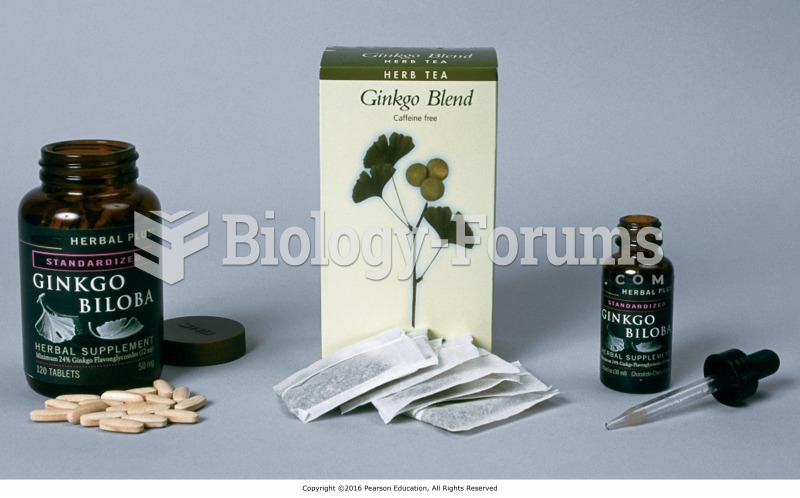|
|
|
Ether was used widely for surgeries but became less popular because of its flammability and its tendency to cause vomiting. In England, it was quickly replaced by chloroform, but this agent caused many deaths and lost popularity.
According to the Migraine Research Foundation, migraines are the third most prevalent illness in the world. Women are most affected (18%), followed by children of both sexes (10%), and men (6%).
Many of the drugs used by neuroscientists are derived from toxic plants and venomous animals (such as snakes, spiders, snails, and puffer fish).
To maintain good kidney function, you should drink at least 3 quarts of water daily. Water dilutes urine and helps prevent concentrations of salts and minerals that can lead to kidney stone formation. Chronic dehydration is a major contributor to the development of kidney stones.
Congestive heart failure is a serious disorder that carries a reduced life expectancy. Heart failure is usually a chronic illness, and it may worsen with infection or other physical stressors.
 This unit is applying smoke to the fuel tank through an adapter and the leak was easily found to be ...
This unit is applying smoke to the fuel tank through an adapter and the leak was easily found to be ...
 Wide angle pose (upavistha konasana in hatha yoga), assisted by practitioner on the left during Thai ...
Wide angle pose (upavistha konasana in hatha yoga), assisted by practitioner on the left during Thai ...





